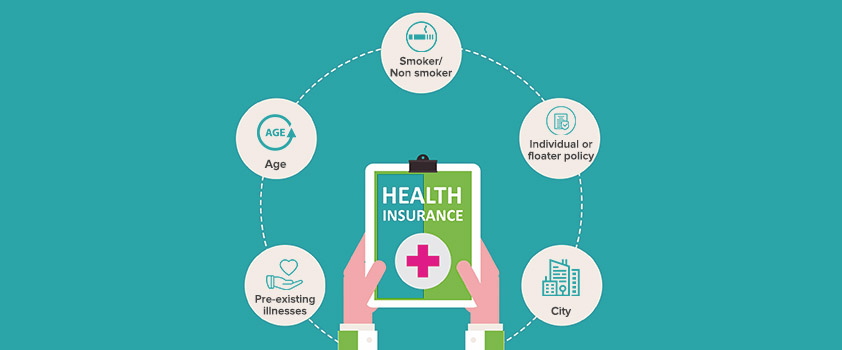The term ‘Premium’ is interpreted as something extra. It can range anything from a premium car fuel to a premium package to a trip abroad. However, in the context of health insurance, the premium is simply a monthly payment. Health plans premiums are essential to keep health insurance plans operational over time.
However, premiums can vary from person to person. But why? It’s because companies calculate premiums based on various qualitative variables. Keen to know more about them? Let’s get started.
Table of Contents
ToggleCalculation of Monthly Premiums
In most cases, companies calculate the monthly premium using five major variables, including age, location, tobacco usage, number of people on policy, and plan category.
- Age
Age is an important variable because the older you get, your premium is higher. This is generally because medical risks increase with age, ultimately increasing the probability of high medical costs.
- Location
Every location has a different cost of living, state laws, and local laws. Hence, the health plan premiums vary according to the location.
- Tobacco Usage
Tobacco usage puts users at a higher risk of illnesses, ultimately increasing medical costs. In fact, insurance companies can even charge tobacco users up to 50% of the premium.
- People on your plan
If you have your wife and children on your policy, your company will likely charge you a higher monthly premium.
- Plan Category
Insurance plans are classified based on metal tiers such as bronze, silver, gold, platinum, and other catastrophic plans. The cost of premiums varies greatly with these categories. For instance, platinum plans usually have higher monthly premiums and lower out-of-pocket costs. Similarly, a bronze plan has a high out-of-pocket cost and low monthly premiums.
Impact of Deductibles on Monthly Premiums
In contrast to the factors mentioned above, deductibles directly impact the monthly premiums. Usually, it follows that the higher the deductible, the lower the premium. But you might be wondering why even go for a high premium plan to get low deductibles. Well, it depends upon the user’s health.
If you’re a healthy person, a low premium with high deductibles would be good for you. But if you suffer from chronic illnesses like cystic fibrosis, you need a low deductible plan. Why so?
You see, such a disease can cost you 800-1000$ bucks for each medical visit – that’s massive. Hence, if you opt for a low deductible plan with a high premium, you will only pay for the first few visits, and your company will cover the rest.

How to pay Monthly Premium?
The payment method varies with the provider. For example, if you get a plan from an insurance marketplace or a private company, you’ll directly pay the company using the prescribed method. Similarly, if you have an employer-based plan, your employer will cover a portion of the payment, and the balance will be deducted from your payroll.
Tip: Always pay insurance on time as you don’t want to default and see your plan terminate.
Saving Money on Insurance Premiums
Till now, you should be aware of the role of premiums in your health plan. But we have good news for you – there are some techniques for reducing the premium.
Here are some of the ways.
- Tax Credit: You can receive a tax credit if you apply for insurance through the federal marketplace. But it depends upon your income; if it qualifies, you can receive a credit.
- Go for an HMO network: To avoid high premiums, you can choose an HMO Plan rather than a PPO plan. HMO plans usually have a limited network of specialists and doctors; hence, the premium is low for these plans.
- Choose High deductible plans: The higher your deductible, the lower the premium. However, make sure you are choosing a deductible that satisfies IRS rules. Furthermore, you can also open a Health Savings Account to make money tax-free and use the funds for any unforeseen medical-related costs.
- Higher Copayments: These are fixed payments you pay for any doctor visit. If these are high, you can qualify for a low premium.
Read our long-term medical insurance guide and get more idea about saving money.

Conclusion
A premium is often the most important part of a health plan. You need to ensure to pay on time before getting your plan terminated. If high premiums worry you, get free quotes at New Health Insurance and find the best health insurance companies for your best fit.

